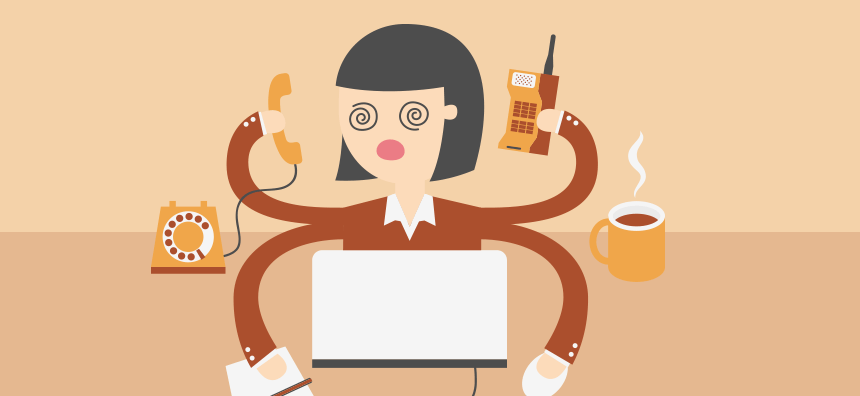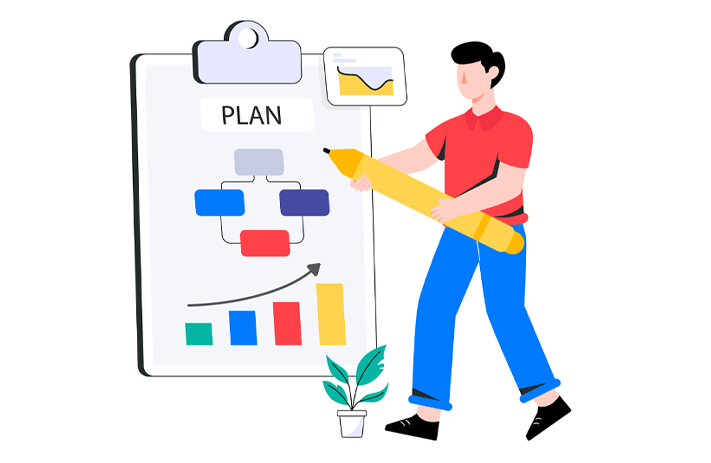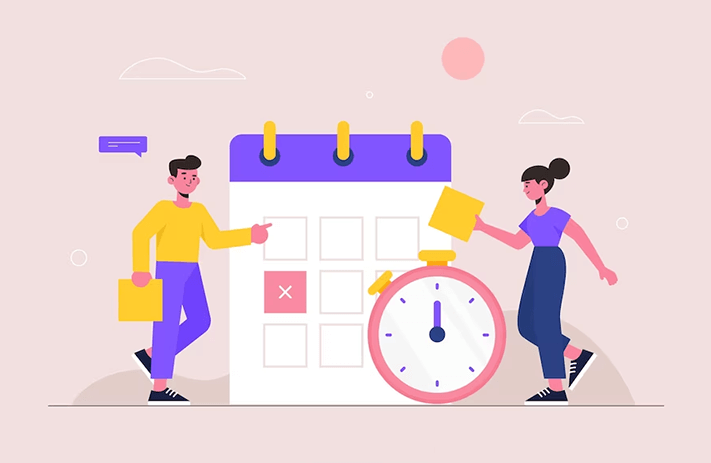
Click the button to start reading
The 5 Perils of Multitasking
In the race to do more in less time, many people pride themselves on their ability to multitask. It is so common, in fact, that it is often listed as a skill on resumes.
But is multitasking really a skill?
There are some instances where you can actually multitask, consider the times that you have listened to a podcast while cleaning as an example. Chores are certainly more bearable with a true-crime podcast playing in the background. Pairing a repetitive or familiar task with something entertaining is a great way to pass the time doing simple or familiar tasks.
And then, there are situations where you really shouldn’t multitask. Here are 5 perils of multitasking:
1. Things Take Longer to Do
You are lying to yourself if you think that you are saving time by multitasking. The truth is, multitasking actually increases the amount of time spent on a single activity because there is a time cost of switching between tasks.
Have you ever been pulled away from a project only to come back and ask yourself “Okay, where was I again?”
The time it takes you to get back into your zone is the cost of switching between tasks and MIT neuroscientist Earl Miller explained that constant change of focus makes our brain less functional, not more.
If you want to see this in action, time yourself writing out your name on a piece of paper. Now, time yourself writing your name but writing every second letter on two separate lines, alternating between them. How long did that take you? Chances are that it took you at least double the time. You still wrote your name but switching between lines after each letter cost you time and focus.

2. Illusion of Satisfaction and Productivity
There is a certain satisfaction you get when you feel as though you are doing five things at once, like you are some sort of super human being. Some companies even reward people for their ability to take on multiple projects or clients at the same time and not realizing that the quality of work could drastically improve if employees were allowed to focus.
State University showed that multitasking actually met an emotional need of feeling as though you’re being productive and contributing, but the same cannot be said for meeting your cognitive needs. Spending less time focused on a task means less attention and thought is put into it, making multitasking less effective when it comes to completing a single task well.
Even spending 25 uninterrupted minutes on a task can significantly increase your productivity. Consider the “Pomodoro Method” as a way to focus. This method involves the use of a timer to focus for a set period of time with the promise of a short break as a reward. Knowing that there is a designated time that you can check your phone or scroll gives you permission to stay on task without the fear of missing out.
3. Less Invested in Tasks
When you multitask, both quantity and quality of your work will suffer. Ping-ponging between tasks is exhausting, research has shown that the additional energy required to do these extra tasks causes your brain to use more glucose (fuel) than would otherwise be needed to complete the task.
This is inefficient and your body knows it.
You’re never fully present in any one activity when you’re switching between tasks. That lack of presence tends to translate to lack of interest which further translates to lack of investment in the completion of the task at hand. What you are left with is less than interesting work on a task that you simply can’t wait to finish as opposed to feeling pride in a job well done.

4. Causes Stress
The science is in, multitasking causes additional stress. Neuroscientist, Dan Levitan, explains that when we multitask, we secrete more cortisol and adrenaline. A brain-scan study showed that, instead of information being processed in the hippocampus to be remembered, information is sent to the wrong parts of the brain.
It may not seem like it at the moment but you are working twice as hard and getting half as much done. There is a stress induced negative feedback loop where you realize that you’re not getting as much done even when taking on additional tasks so you feel the answer is to take on even more tasks to try and feel accomplished.
This is a recipe for burnout and unnecessary stress.

5. Hurts Your Brain
Yes, you read that right. Contrary to popular belief, you’re not exercising your brain by making it do more. Multitasking has actually been shown to lower your IQ! A University of London study compared the cognitive function of someone multitasking to someone who had stayed up all night.
The University of Sussex also performed an interesting study that reviewed the brain scans of people who regularly spent time on multiple devices at once, think of texting on your phone while in a video meeting. The studies were quite surprising and concluded that multitaskers had less brain density in the area of the brain responsible for empathy and cognitive and emotional control.
While it used to be a commonly held belief that this kind of damage was temporary, more studies are showing longer term effects of continuous multitasking.
Breaking the Habit – Managing Multitasking
Having your attention going back and forth between multiple tasks is a recipe for disaster and only creates the illusion of productivity. The continuous state partial attention will not allow you to focus on one thing to give it the attention it deserves.
How does one break the multitasking habit especially when it is so widely believed to be a good thing? The most obvious way to resist the urge to multitask in the first place. You can reduce opportunities that enable or tempt you to multitask by:
Turning off your cellphone for set times in the day or at least disable notifications.
- Closing extra tabs in your browser when not actively working in them.
- Consider using the Pomodoro technique and set a timer while you work.
- Set a regular time to check your email to avoid checking throughout the day.
This is easier said than done, of course.
Implementing even just one of the suggestions will help you break your multitasking habits. As you gain momentum and watch your productivity levels increase, you will be even more encouraged to focus on your work… one task at a time.
















